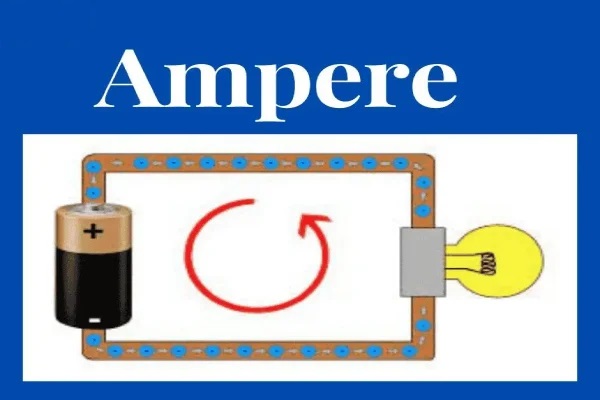Charging a Lipo battery correctly is crucial to maintaining its performance and longevity. But how do you determine the best charging amps for your Lipo battery? It might seem complicated at first, but it’s actually quite straightforward once you understand the basics. In this guide, we’ll take you through everything you need to know, step by step. Let’s dive in!

Part 1. What is amperage (amps)?
First things first, let’s talk about amperage, commonly known as amps. Amperage measures the flow of electric current in a circuit. Think of it like the flow of water through a hose. The higher the amps, the more electricity is flowing. Simple, right?
- Current Flow: Amps tell us how much electric current is moving through a circuit at any given time.
- Battery Charging: The correct amperage ensures your battery charges efficiently and safely.
In essence, understanding amps is key to effectively charging your Lipo battery. If you get the amps wrong, you could either undercharge or overcharge your battery, both of which are bad news.
Part 2. How do amps affect lipo batteries?
Now that we’ve got a grip on what amps are, let’s see how they affect Lipo batteries. Charging amps have a direct impact on your Lipo battery’s performance and lifespan. Using the right amperage ensures your battery charges efficiently without overheating or degrading too quickly.
Effects of Appropriate Amps
- Efficient Charging: When you use the right charging amps, your battery charges quickly and effectively. No fuss, no muss.
- Extended Lifespan: Using the correct amperage helps prevent damage, which means your battery will last longer.
- Safety: Correct amps reduce the risk of overheating, which can lead to dangerous situations.
Risks of Incorrect Amps
Overcharging: Charging with too many amps can overcharge and damage the battery. Overcharging can cause the battery to swell, overheat, or even catch fire.
Undercharging: On the flip side, using too few amps might result in incomplete charging, which can reduce your battery’s performance and lifespan.
So, understanding how amps affect Lipo batteries helps you avoid these pitfalls and keeps your battery in top shape.
Part 3. What parameters are amps related to?
Several parameters are crucial when discussing amps and Lipo batteries. Knowing these will help you understand how to calculate the best charging amps.
- Capacity (mAh): This is the battery’s storage capacity, measured in milliampere-hours (mAh). It tells you how much energy the battery can hold. Higher capacity means more energy storage, which influences the ideal charging amps.
- C-Rating: This indicates the maximum safe continuous discharge rate of the battery. It’s crucial to determine how fast you can safely charge and discharge your battery. A higher C-rating allows for higher charging and discharging currents.
- Voltage (V): The voltage rating of your Lipo battery, typically 3.7V per cell, tells you the number of cells in series in your battery pack. Voltage determines the number of cells in series (S) in your Lipo battery, impacting the total charging amps.
Part 4. How to calculate the best charging amps for lipo battery?
Calculating the best charging amps for a Lipo battery involves a simple formula. This ensures you charge your battery safely and efficiently.
So, how do you figure out the perfect charging amps for your Lipo battery? It’s not rocket science, but it does require a little math.
Here’s the formula:
Charging Amps (A) =(Battery Capacity (mAh) / 1000 )x C-Rate
The general rule is to charge your Lipo battery at a rate of 1C. C stands for the capacity of the battery in amp-hours (Ah).
Let’s say you have a 5200mAh Lipo battery with a 1C rating.
Find the Capacity: Check your battery’s capacity in milliampere-hours (mAh). For example, a 5200mAh battery.
Convert to Amp-Hours: Divide the mAh by 1000. For a 5200mAh battery: 5200mAh / 1000 = 5.2Ah.
Apply the 1C Rule: Multiply the capacity in Ah by 1C. For a 5.2Ah battery: 5.2Ah * 1C = 5.2 amps.
However, many experts recommend charging at slightly lower amps to prolong battery life. So, something around 4 amps might be a good sweet spot.
Adjusting for Higher C-Ratings
If your battery has stronger C-ratings for charging, you can adjust accordingly. For example, if it supports 2C, you can charge at twice the 1C rate. But always check the manufacturer’s recommendations.
Example Calculation
For a 2000mAh battery:
Capacity: 2000mAh
Convert: 2000mAh / 1000 = 2Ah
Calculate: 2Ah * 2C = 4amps
So, the charging amps for a 2000mAh battery is 4 amps at a 2C rate.
Part 5. Best charging amps for a 5200mAh battery
Let’s apply the calculation to a 5200mAh Lipo battery in detail.
Step-by-Step Calculation:
- Identify Capacity: The battery is 5200mAh.
- Convert Capacity: 5200mAh / 1000 = 5.2Ah.
- Calculate 1C Charging Rate: 5.2Ah * 1C = 5.2 amps.
Practical Tips
- Check Manufacturer’s Guidelines: Always refer to the battery’s datasheet or Let’sacturer’s guidelines. Some batteries can handle higher charging rates.
- Use a Quality Charger: Ensure your charger can deliver the required amps safely.
- Monitor Temperature: Keep an eye on the battery temperature during charging. If it gets too hot, lower the charging amps.
By following the battery’s tips, your 5200mAh Lipo battery charges safely and efficiently at 5.2 amps.
A final word of advice: Invest in a good quality Lipo charger. These chargers often have built-in safety features and allow you to adjust the charging amps. This gives you more control over the charging process and helps protect your battery.
Part 6. Conclusion
Calculating the best charging amps for your Lipo battery is essential. It ensures safety, efficiency, and longevity. By understanding amps, their effects, and related parameters, you can confidently charge your Lipo batteries. Remember, for a 5200mAh battery, the best charging rate is 5.2 amps at a 1C rate. Always follow manufacturer recommendations and monitor your battery during charging.



